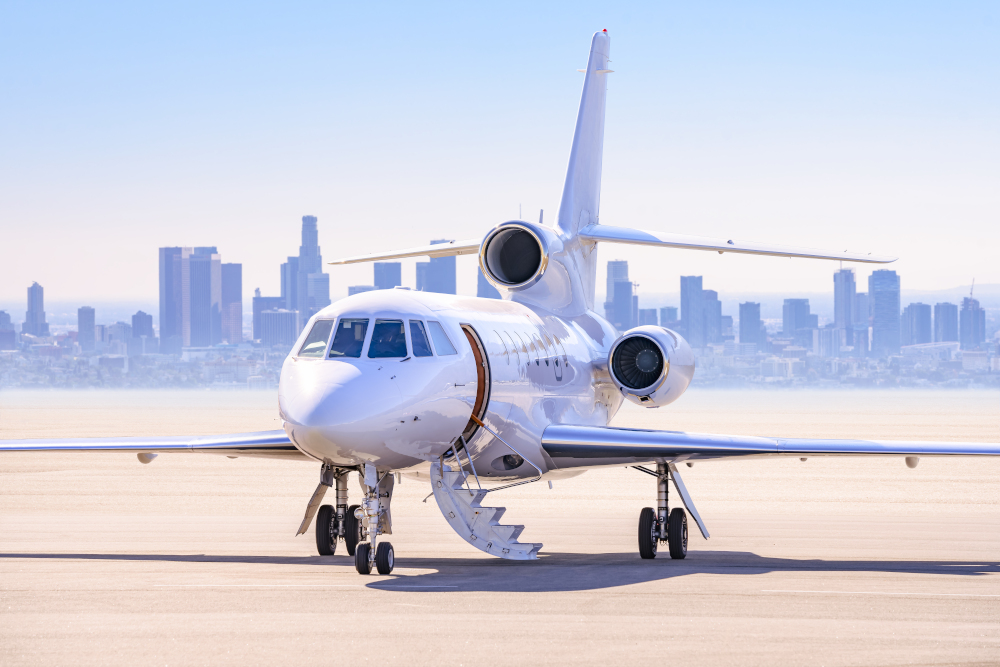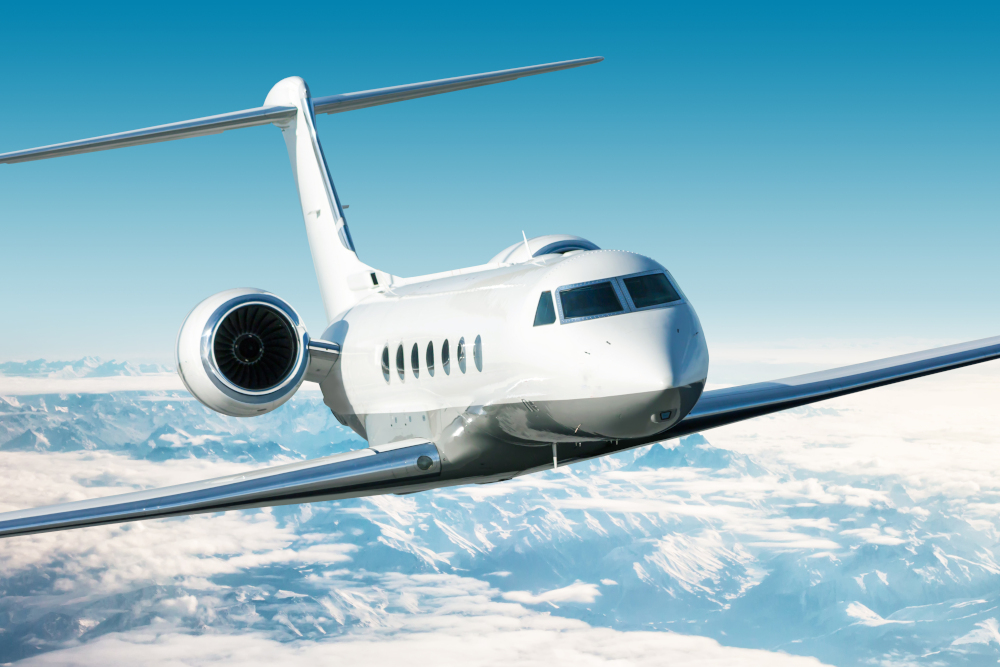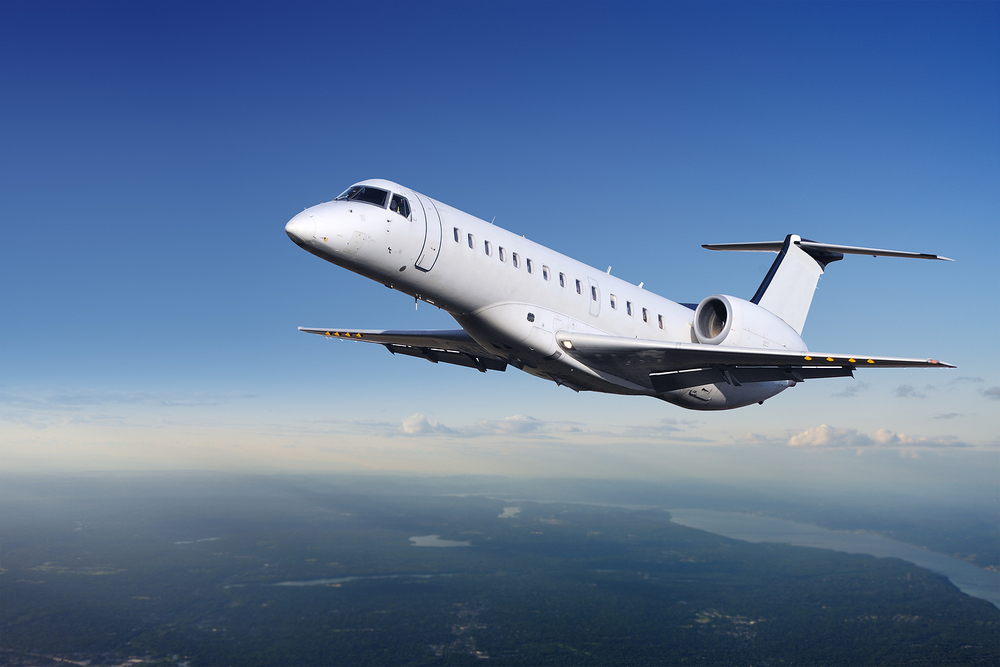Luxury travel has long been synonymous with private jets, offering unparalleled comfort, convenience, and exclusivity. However, as environmental consciousness grows, the private aviation industry is adapting to meet the demands for sustainability without compromising on luxury.
Here, we explore how the industry is going green by highlighting the innovative technologies, sustainable practices, and the benefits for environmentally conscious travellers.
The push for sustainability
The push for sustainability in private aviation is driven by both regulatory pressures and consumer demand. Governments and international bodies are implementing stricter emissions standards, while affluent travellers are increasingly prioritising eco-friendly options. This convergence of regulatory requirements and consumer preferences is pushing the industry towards greener practices.
Sustainable Aviation Fuel (SAF)
One of the most significant advancements in reducing the carbon footprint of private jets is the development and adoption of Sustainable Aviation Fuel (SAF). SAF is produced from renewable resources such as plant oils, agricultural residues, and municipal waste. It can reduce lifecycle greenhouse gas emissions by up to 80 per cent compared to conventional jet fuel.
Several private jet operators have committed to using SAF. Companies like NetJets and VistaJet are leading the charge, incorporating SAF into their operations. Moreover, airports around the world are increasing their supply of SAF, making it more accessible for private jet solutions. This shift not only reduces emissions but also sets a new standard for the industry.

Carbon offsetting programmes
In addition to using SAF, many private jet companies are implementing carbon offsetting programmes. These programmes allow operators to invest in environmental projects that reduce carbon emissions, such as reforestation initiatives, renewable energy projects, and community-based sustainability efforts. By offsetting the carbon emissions of their flights, these companies can offer carbon-neutral travel experiences.
Energy-efficient aircraft design
Advancements in aircraft design are also playing a crucial role in making private aviation more sustainable. Modern private jets are being designed with fuel efficiency in mind. This includes the use of lighter materials, such as carbon fibre composites, which reduce the aircraft’s weight and, consequently, fuel consumption.
Aircraft manufacturers like Bombardier and Gulfstream are investing heavily in research and development to create more aerodynamic designs. These efforts result in jets that consume less fuel while maintaining the high standards of luxury and performance expected by private jet users.
Electrification and hybrid technologies
While fully electric commercial jets may still be a vision for the future, significant strides are being made in hybrid-electric technology for smaller aircraft. Hybrid-electric propulsion systems combine conventional jet engines with electric motors, reducing fuel consumption and emissions during critical phases of flight, such as take-off and landing.
Companies like Zunum Aero and Ampaire are developing hybrid-electric aircraft specifically targeted at the private and regional aviation markets. These innovative aircraft promise to reduce the environmental impact of private flying while offering a glimpse into the future of sustainable aviation.

Ground operations and infrastructure
Sustainability in private aviation extends beyond the aircraft itself. Ground operations and infrastructure are also being optimised to reduce environmental impact. Airports are investing in renewable energy sources, such as solar panels and wind turbines, to power their facilities. Additionally, many are implementing energy-efficient lighting and heating systems to further reduce their carbon footprint.
FBOs (Fixed Base Operators), which provide services to private jet travellers, are also adopting greener practices. This includes the use of electric ground support equipment, such as tugs and baggage carts, and implementing recycling programmes for waste materials. These efforts ensure that every aspect of the private aviation experience is aligned with sustainability goals.
The role of technology in sustainability
Technology is a key enabler of sustainability in private aviation. Advanced flight planning software allows operators to optimise flight paths, reducing fuel consumption and emissions. Real-time weather data and predictive analytics help pilots make informed decisions that enhance fuel efficiency.
Moreover, the adoption of blockchain technology is providing transparency in carbon offsetting programmes. Blockchain ensures that offset credits are accurately tracked and verified, giving clients confidence that their contributions are making a real difference.

The benefits for travellers
For environmentally-conscious travellers, the move towards sustainable private aviation offers several benefits. First and foremost, it provides peace of mind. Knowing that their travel choices are not contributing to environmental degradation allows travellers to enjoy the luxury of private jets without guilt.
Additionally, the adoption of sustainable practices often results in cost savings for operators, which can be passed on to clients. More efficient aircraft and operations mean lower fuel costs, which can translate into more competitive pricing for private jet charters.
Furthermore, sustainable aviation initiatives enhance the overall travel experience. Modern, fuel-efficient aircraft are quieter and more comfortable, offering a superior flight experience. The use of SAF and carbon offsetting programmes also reflects a commitment to corporate social responsibility, which resonates with clients who value ethical business practices.
The bottom line
The private aviation industry is undergoing a significant transformation as it embraces sustainability. Through the adoption of SAF, carbon offsetting programmes, energy-efficient aircraft design, hybrid technologies, and greener ground operations, the industry is reducing its environmental impact while maintaining the high standards of luxury and convenience that private jet travellers expect.
As technology continues to advance and more operators commit to sustainable practices, the future of private aviation looks bright. For travellers, this means the ability to enjoy the unparalleled benefits of private jets while supporting a more sustainable and environmentally friendly industry. The shift towards sustainable luxury in private aviation is not just a trend, it is a fundamental change that promises to redefine the way we think about luxury travel.






















